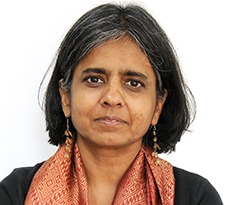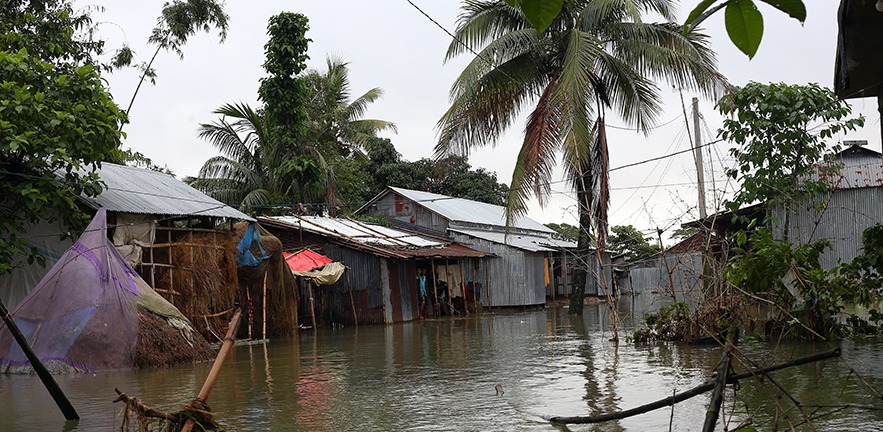The upcoming COP27 climate change meeting in Egypt must focus on compensating for environmental damage in poorer countries, says Sunita Narain in a Cambridge Judge Business School webinar.
The upcoming COP27 climate change meeting must focus on creating a system of compensating for environmental damage in poorer countries, says Sunita Narain, Director General of the Centre for Science and Environment in New Delhi, in a Cambridge Judge Business School webinar.
Speaking on the latest in the CJBS Perspectives series, Narain says that the 27th United Nations Climate Change conference in Sharm El-Sheikh, Egypt (6-18 November) also needs to redouble efforts to stick to temperature targets at a time when the Ukraine war is putting pressure on governments.
‘Seriously off track’ on warming commitment

“I think we’re seriously off track” on the commitment to keep the global average temperature rise to 1.5 degrees Celsius above pre-industrial levels. “This year we’ll be even more off track as Europe goes back to fossil (fuels) – this may be temporary, maybe not.”
Narain was interviewed by Jaideep Prabhu, Professor of Marketing and Jawaharlal Nehru Professor of Indian Business & Enterprise at Cambridge Judge. CJBS Perspectives: Leadership in Unprecedented Times, is a series of talks with prominent business leaders and other public figures organised by the Alumni & External Engagement and Executive Education teams at Cambridge Judge.
“What Egypt (COP27) really needs to focus on is an adaptation fund” that focuses on climate-change damage, she said. “That has to be the centrepiece of the next COP.”
Rich and poor countries are far apart on compensation

Developing countries argue that wealthier nations should pay more in such compensation because they are chiefly responsible for the damage caused by historical greenhouse gas emissions. A meeting in Germany in June showed that rich and poor countries remain far apart on this issue.
“We know we have to put huge amounts of money into the hands of countries so they can cope better with the worst impacts of climate change, and we need to set up a system of computing the loss and the damages and compensation,” says Narain. “We need reparations to be discussed: We can’t anymore say ‘that’s too offensive’. It’s not offensive, that’s a fact of life, and it has to be on the table.”
Narain told the webinar that her environmental journey began in her youth when she trekked in the Himalayas, and saw the environmental interest of women in remote areas.
“I gained an understanding from them it was a matter of survival, it wasn’t about trees being so beautiful they needed to be protected” – but rather that trees are essential for everything from holding soil to firewood for cooking.
Conflict between environmental and trade goals
She said that a huge challenge facing the world today – polarisation between North and South, and rich and poor – stems in part from conflict stemming from dual movements in the 1990s: an environmental wakening begun at the Rio conference of 1992, and moves toward free global trade with the creation of the World Trade Organization in 1995.
“We stitched up an architecture for ecological globalisation, because we understood that no nation by itself could adequately protect the environment,” but we also created a global trading system in which “manufacturing would move to where it was cheaper” – countries with far fewer environmental and labour regulations.
“The outcome of all this is the existential threat of climate change,” Narain said. “A few years ago people talked about this as something for the future, a real possibility,” but now many parts of the world are suffering badly from flooding and other effects.
Societal values can’t be split from environmental protection
Asked by Jaideep Prabhu on her thoughts for the next generation, Narain said: “Where we have gone wrong is really the understanding that environment is not about tech, it is about politics – and the politics is about inclusion, the politics is about equality, and the politics is about humanity. “We believed that we can set aside the values of society from the protection of the environment, and that’s where my generation has failed you, and I hope you will correct that and understand that.”
The webinar
Launched in April 2020 in response to the tumult of the global pandemic, CJBS Perspectives: Leadership in Unprecedented Times is a video series organised by the Alumni & External Engagement team at Cambridge Judge. The series features globally prominent business leaders discussing timely and interesting business topics and themes, as well as a view on how they and their organisations have coped, and even thrived, in challenging times.


